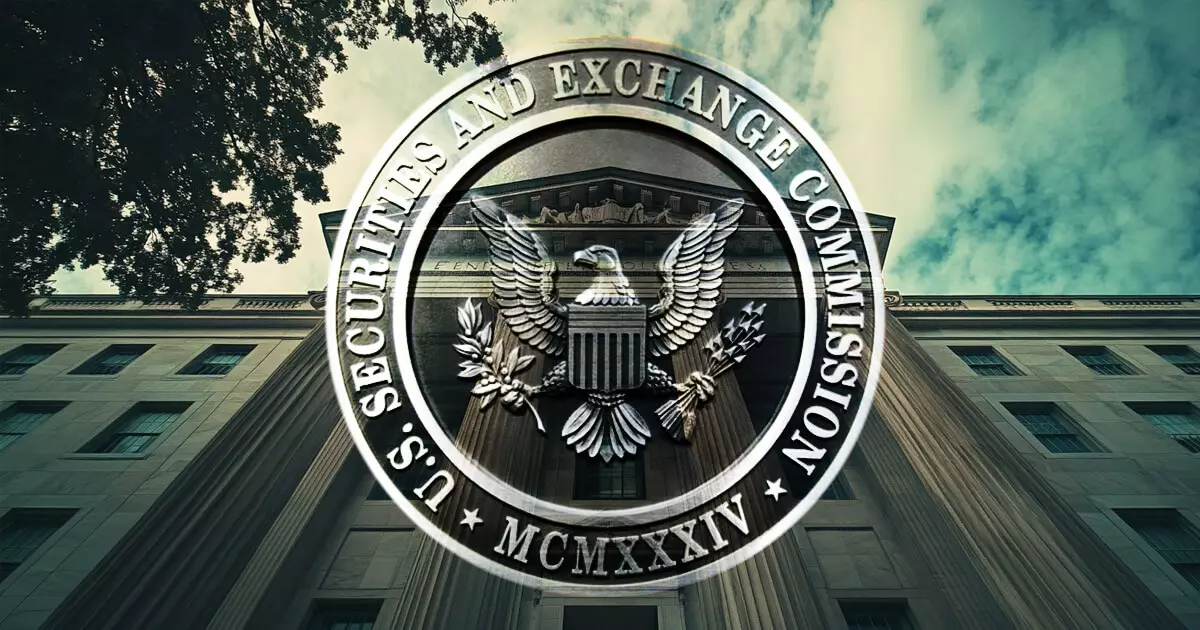Last week marked a significant moment in the evolving landscape of cryptocurrency regulation, as TrustToken and TrueCoin—the entities responsible for the TrueUSD (TUSD) stablecoin—came to a settlement with the U.S. Securities and Exchange Commission (SEC). This settlement arises from allegations that the companies engaged in fraudulent and unregistered sales of investment contracts. Under the terms of the settlement, the companies agreed to pay a total of $700,000 in penalties and disgorgement while neither admitting to nor denying the SEC’s findings. This resolution may seem mundane, but its repercussions could ripple through the already volatile crypto market.
In a statement to CryptoSlate, the teams from TrustToken and TrueCoin indicated their initial willingness to contest the SEC’s allegations. However, they ultimately opted for settlement, as they deemed litigation a distraction that would detract from their potential business opportunities. This retreat from contestation raises questions about the integrity of their previous claims and the long-term viability of their operations in an increasingly scrutinized sector.
The SEC’s complaint, filed in the Northern District of California, outlines a troubling narrative that unfolds from November 2020 to April 2023. It asserts that TrueCoin and TrustToken conducted unregistered offers and sales of TUSD as investment contracts through their lending protocol, TrueFi. At the center of the allegations is the assertion that the companies falsely advertised TUSD as being fully backed by U.S. dollars or equivalent assets, while a significant portion of these backing assets were funneled into a speculative offshore fund.
The SEC claims that by March 2022, more than half a billion dollars of TUSD backing was locked in this high-risk fund. Alarmingly, by September 2024, it is alleged that a staggering 99% of TUSD’s reserves had been invested there, exposing unwitting investors to undisclosed risks. This type of behavior exemplifies the lack of transparency that has become a recurrent theme in the crypto sector, prompting calls for stricter regulatory measures.
The actions of the SEC against TrustToken and TrueCoin are indicative of a broader trend in the regulatory landscape, especially in the cryptocurrency sector. Recently, the SEC has ramped up its enforcement activities, as evidenced by the staggering $4.68 billion in fines collected from the crypto sector throughout 2024—a significant increase from the previous year’s total of $3.9 billion. This trend underscores the agency’s commitment to holding crypto companies accountable and safeguarding investor interests.
Jorge G. Tenreiro, Acting Chief of the SEC’s Crypto Assets & Cyber Unit, underlined the importance of registration as a protective measure for investors. His statement serves as a stark reminder that the crypto market is fraught with complexities and risks that can lead to financial distress for the retail investor. The focus on regulatory compliance is not merely a bureaucratic exercise but a necessary step in fostering a more transparent and secure crypto ecosystem.
Following the announcement of the settlement, TUSD experienced a momentary de-peg, raising concerns among investors about the stablecoin’s resilience. At the time of the report, TUSD had a market capitalization of nearly $494 million, which showed a slight recovery to $495 million shortly thereafter. However, the asset’s value dipped again to approximately $0.98 within a day, despite briefly returning to just above its pegged value.
This fluctuation illustrates the volatility inherent in the crypto marketplace, particularly concerning stablecoins, which are designed to maintain a consistent value. Investors are understandably wary during such times of turbulence, as any instability can provoke broader implications for liquidity and trust in the cryptocurrency sector.
As TrustToken and TrueCoin settle their disputes with the SEC, their case serves as a cautionary tale for other cryptocurrency entities operating without rigorously complying with federal securities laws. This incident underscores the pressing need for transparency, accountability, and adherence to regulatory guidelines in an industry where both innovation and risk coexist harmoniously. The crypto sector stands at a crossroads; its future may depend heavily on how effectively it reconciles with regulations designed to protect the integrity of the market and its participants.















